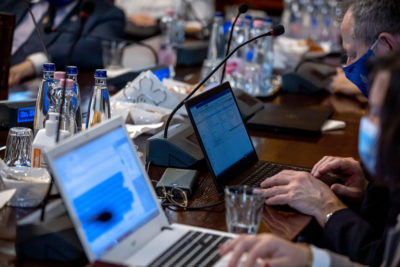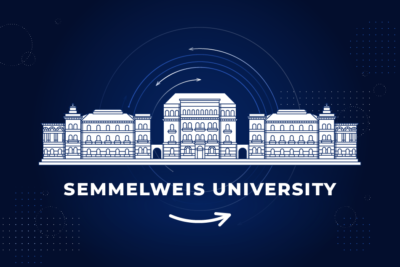The Senate of Semmelweis University supported at its January 28, 2021 meeting changing the operating model of the university, including its six faculties, public education and vocational institutions, as well as its clinical center forming an organic unit with its medical and health sciences training, to operate in the future under the direction of a public-interest foundation established by the state. The legal relationship of public-sector workers is expected to change on August 1, 2021 due to the model change.
At the negotiations between the leadership of Semmelweis University and interest organizations, both parties agreed that its human resources are the university’s biggest value. Therefore, the university as employer declared that it is not planning any group layoffs as a result of the model change and regards retaining workers and improving the quality of their work conditions as a key factor. If reorganizations take place in order to streamline operations, the university will take all possible measures to retain every worker or offer another unfilled position.
In the year following the model change there will be no change in the notice period related to the termination of employees. After that, the rules of the Labor Code will apply, allowing for a notice period of up to 6 months.
The agreement declares that the fringe benefits afforded to workers (the “cafeteria” system) will continue after the model change; moreover, the monthly budget will increase from net HUF 10,000 to HUF 20,000. School-starter support will also continue to be provided, and the university will cover the mandatory chamber fees of health care professionals.
In the first 5 years following the model change, the rules on jubilee benefits will remain the same. After that, the “Semmelweis Loyalty Reward” will be created, under which workers with 10, 20, 30 and 40 years of continuous service at Semmelweis University will receive a one-time reward equaling one, two, three and four month’s pay, respectively. Employees will also continue to be eligible for travel cost reimbursement and coupons.
According to the agreement, after the model change a complex, performance-based remuneration system will be implemented, in which recognizing worker excellence will be a key aspect. The employer vows to form as part of the base salaries the allowances currently not included in relevant laws. The number of vacation days per year are also covered in the agreement: educators will continue to receive 25 educator compensatory leave days per year that can be used to attend conferences or other professional work directly related to education-research activities, but which cannot be rolled over to the following year. With regard to compensatory leave days of workers employed as teachers, the provisions for public-sector employees shall apply. In addition, each person will start with the number of other compensatory leave days (e.g. for management positions) they were eligible for at the time of the model change.
The university and interest organizations also agreed on setting up an annual HUF 25 million social fund, with the goal of providing help to employees in case of sudden, unexpected life situations that affect their families directly. University holiday facilities will continue to be available for employee use, and will be maintained and developed by the university.
The leaders of Semmelweis University and interest organizations, in order to increase the trust and security of workers, found it important to declare in an agreement the guarantees afforded to workers following the model change. The agreement is planned to be officially signed by the leaders of the university and the other stakeholder parties after the current pandemic situation eases.
In addition to conducting regular meetings and discussions with interest groups and student organizations, the leadership of the university feels it is particularly important to continuously inform Semmelweis Citizens about the model change. For this purpose, it has set up a page accessible from the semmelweis.hu main page, where anyone can submit questions, based on which a list of frequently asked questions (FAQ) and answers is compiled and regularly updated.
Pálma Dobozi
Translation: Tamás Deme


